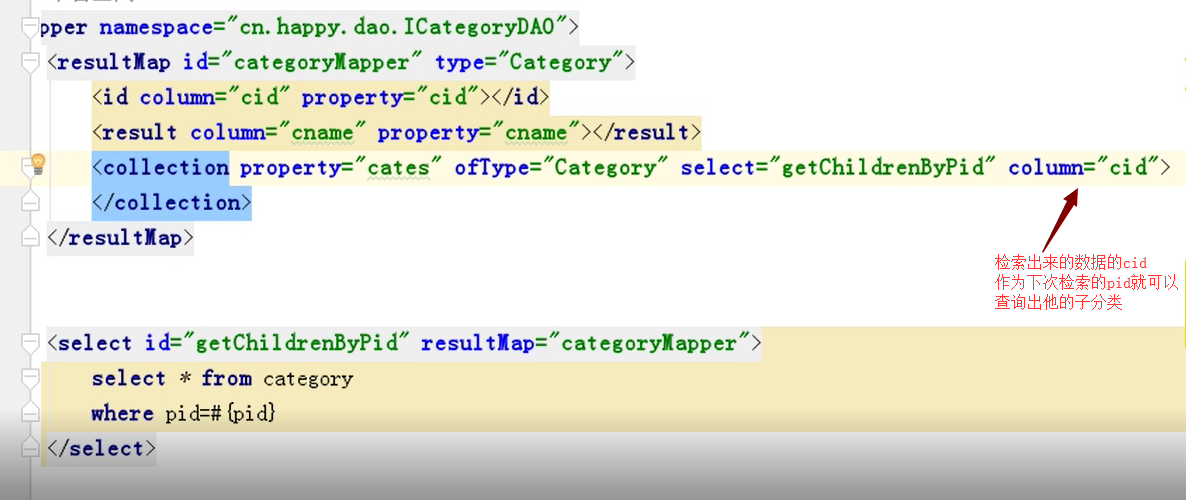多表关联查询
一对多
单条SQL实现。
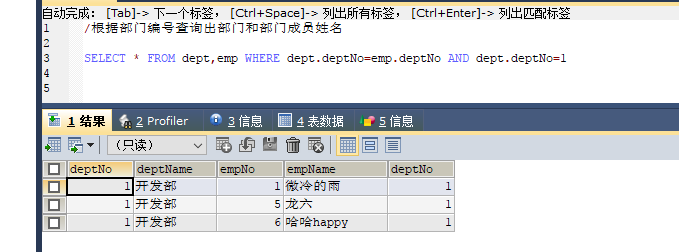
//根据部门编号查询出部门和部门成员姓名
public dept selectAll() thorws Excatipon; //接口的抽象方法
下面是对应接口的映射文件,关键代码
<resultMap id="AllMapper" type="dept">
<id column="deptNo" property="deptNo"></id>
<result column="deptName" property="deptName"></result>
<collection property="emps" ofType="Emp">//collection用于集合对象,property对应实体中的集合变量名, ofType元素类型为Emp,因为集合中的数据类型都是Emp的。
<id column="empNo" property="empNo"></id>
<result column="empName" property="empName"></result>
</collection>
</resultMap>
<select id="selectAll" resultMap=”AllMapper”> //id对应接口中的方法,resultMap对应上面resultMap的id中的内容。
SELECT * FROM dept,emp WHERE dept.deptNo=emp.deptNo AND dept.deptNo=#{占位符}
</select>
测试类中的代码:

一对多多条SQL实现。
//根据部门编号查询出部门和部门成员姓名
public dept selectTwo() thorws Excaption;//接口中的方法
数据库测试
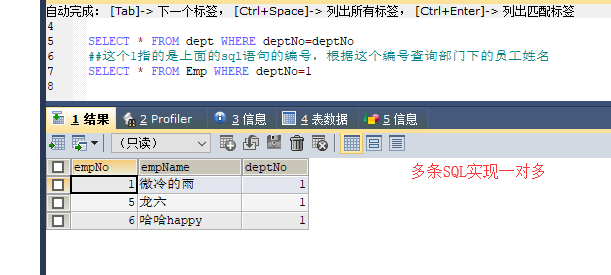
映射文件代码:
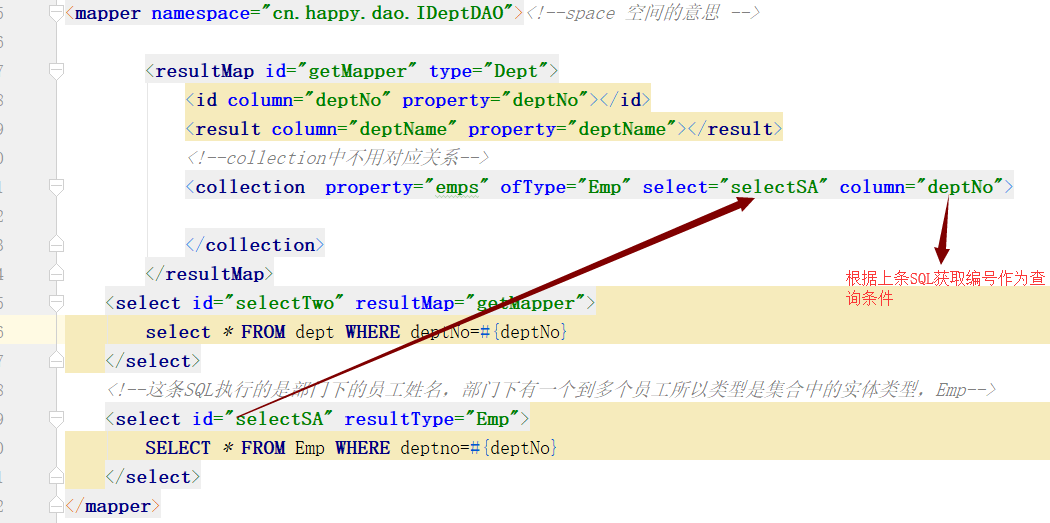
测试类运行代码:
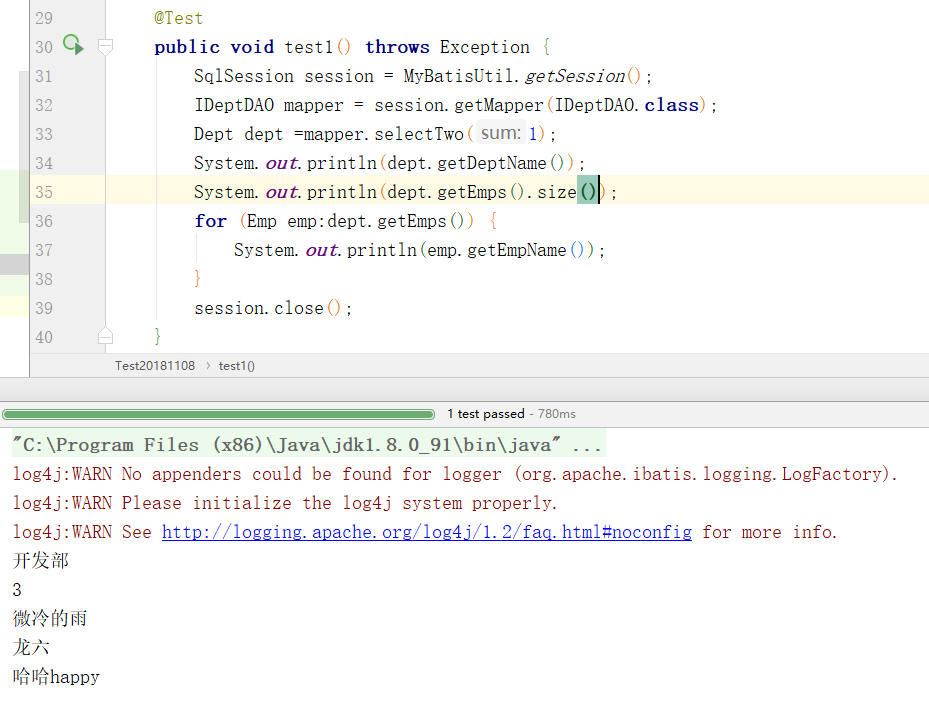
多对一关联查询
接口代码:

映射文件代码: 其实就是多的一方对一的一方, sql语句也就是换了个条件, 要灵活运用
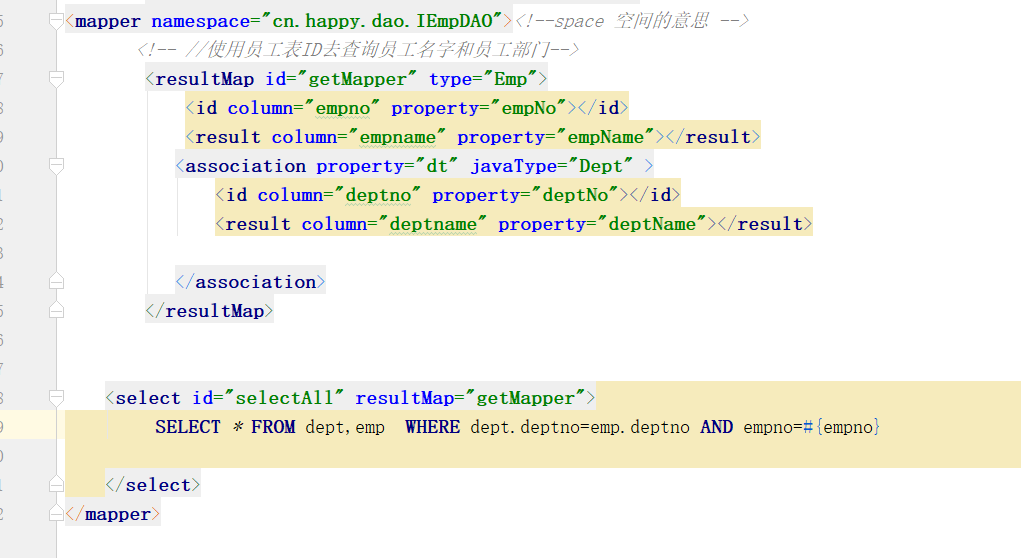
测试类代码:

多对多关联查询

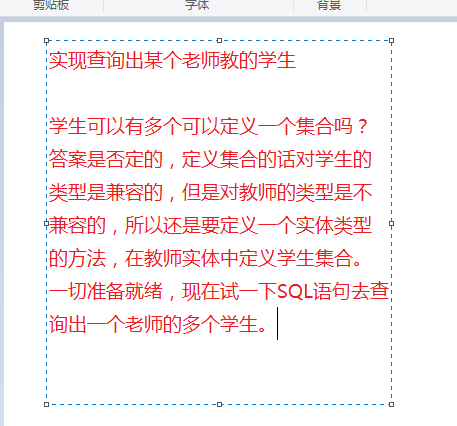
select student.sid,sname,teacher.tid,tname
from student,teacher_student,teacher
where student.sid=teacher_student.sid
and teacher.tid=teacher_student.tid
and teacher.tid=#{tid}
其实多对多除了SQL语句和上面不一样其实实现思路都是一样的。可以灵活运用。
自关联查询
自关联查询,就是自己可以称多的一方,自己也可以称单的一方。
按三级分类案例来说,自己有自己的父类,自己也可以有自己的子类
表中有三列,一个是分类编号, 一个是分类名称,一个是父类分类编号,
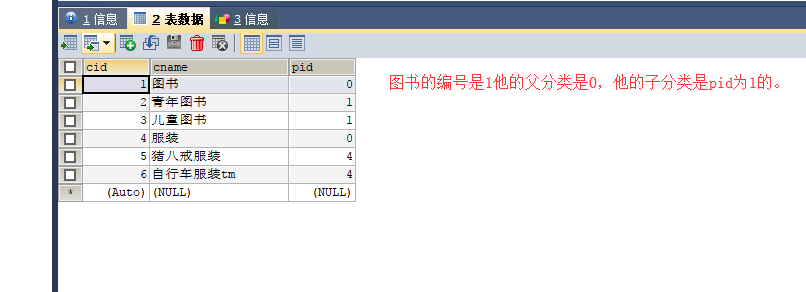
SQL语句 select * from tree表 where pid=上次查询出的数据的cid
